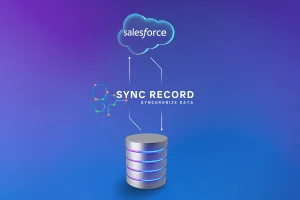Large organizations in particular are increasingly faced with the need to streamline their processes, become more efficient and reduce errors in order to strengthen their competitive position. Choosing the right systems (think ERP, CRM, etc.) to work with is a very distinguished one in this regard. Where organizations move to new systems - or where organizations with two different systems are merged - we have to deal with merging and moving data between these systems: also called data migration and data integration. We recognize a number of trends in data migration. One is automation.
Reduce errors and improve accuracy
Increase in use of automation tools
The role of digitization
Finally, the increasing digitization of business processes plays a role in the growth of automation. With the transition to digital systems and platforms, it is becoming increasingly easy to automate processes and integrate data between different systems and applications.
All in all, automation is actually no longer an optional luxury, but a necessity for organizations that want to thrive and grow. By streamlining data migration, reducing errors and saving valuable time and resources, automation puts companies on the path to growth, efficiency and competitive advantage.
Data enrichment and the right partner
Having a reliable partner by your side is essential. Our experienced professionals are ready to guide you through the implementation of automation solutions, with the goal of minimal disruption to your organization. In addition, automation offers a great opportunity to streamline your processes and increase operational efficiency. And don’t forget the opportunity to enrich existing data and get an even better picture of your customers/clients. We’d love to tell you more about this!
Our partnership allows you to stay focused on the core activities of your business, while we carefully set up the automation processes for future-proof and efficient operations.

Ask our specialists
Want to know more about automation (including in Data Migration) for your organization? If so, please feel free to contact Arnd Jan Prause, Founder and Consultant at musQueteer
Whitepaper 'Growing faster with CRM'
Is your organization planning to implement a new system, and do you want to know what to look out for to ensure a smooth data migration? Then download our free Whitepaper “Data Migration” and read all about it.



